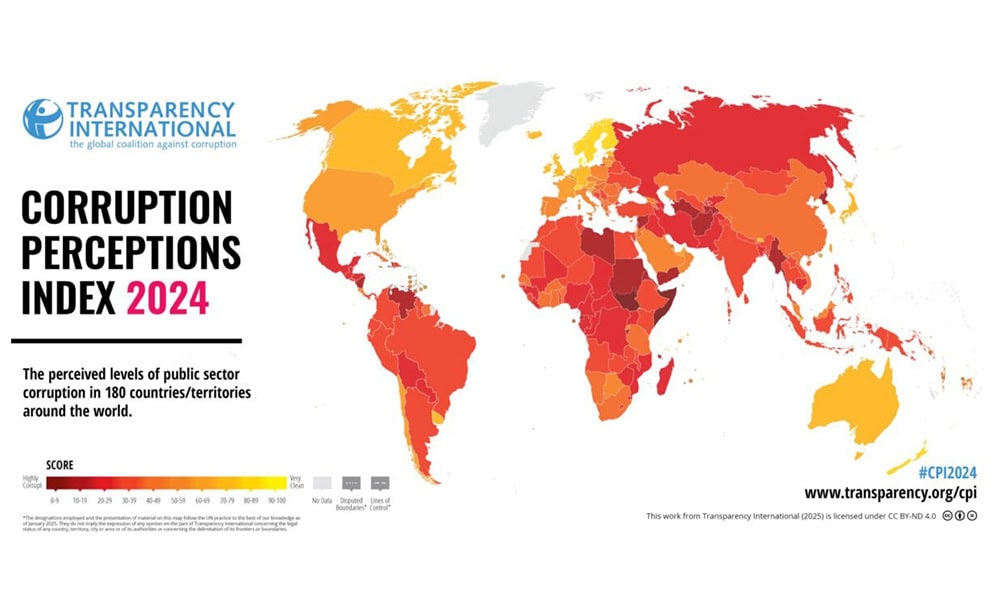Costa Rica ranks 52nd in the 2024 Corruption Perceptions Index (CPI), published by Transparency International. The country moved up three positions compared to last year’s ranking and obtained a score of 58/100. The CPI is the most widely used global corruption ranking in the world. It measures how corrupt each country’s public sector is perceived to be, according to experts and businesspeople.
Each country’s score is a combination of at least three data sources drawn from 13 different corruption surveys and assessments. These data sources are collected by various reputable institutions, including the World Bank and the World Economic Forum. According to Transparency International, leading the region this year are Uruguay (CPI score: 76), Canada (75), and Barbados (68) – all relatively stable democracies with high levels of transparency and participation.
At the other end of the index, states ravaged by organized crime and human rights abuses hold the lowest scores – Haiti (16), Nicaragua (14), and Venezuela (10). The report highlighted the region’s struggles with impunity for environmental crimes and corruption. “Widespread corruption thwarts efforts to combat climate change, degrading the environment.
People, too, endure the repercussions, as the right to live in a healthy environment – mandated by the United Nations – is threatened, and the ancestral territories of Indigenous populations are devastated,” the organization mentioned. Other issues such as weak institutions and a lack of transparency were also highlighted. According to the document, these allow criminal organizations to “exploit natural resources with no regard for the consequences.”
Transparency International also revealed that political elites “exploit the weakness of the system, using procurement fraud, bribery, and the manipulation of environmental policies for their own benefit,” further contributing to the crisis. At the same time, shrinking civic space and restricted access to information are other major setbacks. This, coupled with a weak judiciary, restricts justice and law enforcement across the Americas.






